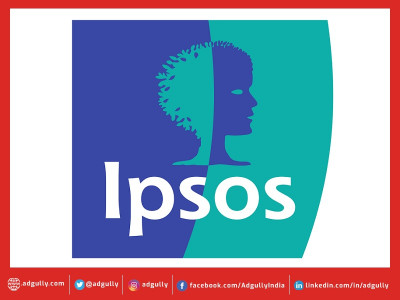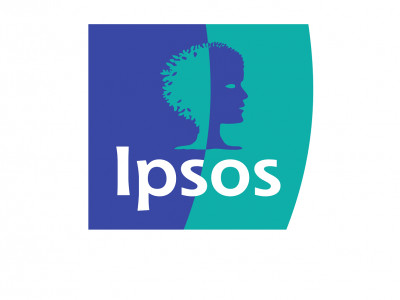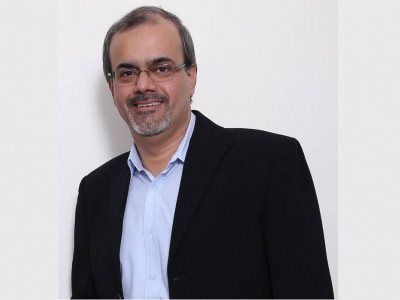India Leads Global Satisfaction in Love Life: Ipsos Survey
Ipsos Global Advisor 31 country, Love Life Satisfaction Around the World survey shows interesting insights about urban Indians and their romantic life. India tops all 31 markets covered in the survey, in satisfaction with romantic/ sex life with at least 76% urban Indians claiming to be satisfied. In comparison, only 62% global citizens claimed to be satisfied on this attribute. Mexico was tied in with India at the top spot (76%), followed by China (75%), Thailand (75%), Indonesia (73%) and Colombia (73%). And the citizens least satisfied with their romantic/ sex life were from Japan (37%), South Korea (45%) & Canada (52%).
Feeling loved
Reminiscing the track Love Me Do of The Beatles, love is definitely felt across all global markets with almost 3 in 4 global citizens (74%) claiming to be satisfied with feeling loved. 84% urban Indians felt satisfied with their feeling of being loved. India was placed 2nd in the pecking order and was preceded by Colombia (86%) and Peru (86%) - tied at the top spot.
Japan was placed at the bottom of the heap with only 1 in 2 satisfied with feeling loved (51%).
Commenting on the findings of the survey, Ashwini Sirsikar, Group Service Line Leader, Ipsos UU & Synthesio, India said, "India topping the charts is not really a surprise as we as a society believe in love, institution of marriage, stable and enduring romantic relationships. If we look at Valentine’s Day per se, from being a subdued activity in the past, it is now more overt with gifting, dining, celebrating, with social media being a key enabler. Marketers have leveraged this opportunity to pull out all stops to celebrate this day of love into a weeklong activity – starting with rose day, propose day, teddy day, promise day, hug day, kiss day, culminating with Valentine’s Day."
Relationship with partner/ spouse
So, how satisfied are citizens with their partner/ spouse? This question was posed to those married or partnered. Interestingly, 83% urban Indians and 83% global citizens claimed to be satisfied with the relationship shared with their partner/ spouse. India was placed 15th in the pecking order. Markets placed at the top were Thailand (92%), Netherlands (91%) and Indonesia (88%). Though South Korea (68%) and Japan (69%) were ranked lowest, at the same time majority of their citizens were satisfied with their relationship with their significant other.
"Urban Indian couples are mostly working, with dual incomes to augment their lifestyle, and lead a comfortable life, as they get household help for chores. With education and financial freedom, couples these days share an almost equal relationship, of understanding and camaraderie. The survey reaffirms our belief in love and affection," added Sirsikar.
About the survey
These are the results of a 31-country survey conducted by Ipsos on its Global Advisor online platform and, in India, on its IndiaBus platform, between Friday, December 22, 2023 and Friday, January 5, 2024. For this survey, Ipsos interviewed a total of 24,269 adults aged 18 years and older in India, 18-74 in Canada, Republic of Ireland, Malaysia, New Zealand, South Africa, Turkey, and the United States, 20-74 in Thailand, 21-74 in Indonesia and Singapore, and 16-74 in all other countries. The sample consists of approximately 2,000 individuals in Japan, 1,000 individuals each in Australia, Brazil, Canada, China, France, Germany, Great Britain, Italy, New Zealand, Spain, and the U.S., and 500 individuals each in Argentina, Belgium, Chile, Colombia, Hungary, Indonesia, Ireland, Malaysia, Mexico, the Netherlands, Peru, Poland, Singapore, South Africa, South Korea, Sweden, Thailand, and Turkey.
The sample in India consists of approximately 2,200 individuals, of whom approximately 1,800 were interviewed face-to-face and 400 were interviewed online. Samples in Argentina, Australia, Belgium, Canada, France, Germany, Great Britain, Hungary, Italy, Japan, the Netherlands, New Zealand, Poland, South Korea, Spain, Sweden, and the U.S. can be considered representative of their general adult populations under the age of 75. Samples in Brazil, Chile, China, Colombia, Indonesia, Ireland, Malaysia, Mexico, Peru, Singapore, South Africa, Thailand, and Turkey are more urban, more educated, and/or more affluent than the general population. The survey results for these countries should be viewed as reflecting the views of the more "connected" segment of their population.
India's sample represents a large subset of its urban population - social economic classes A, B and C in metros and tier 1-3 town classes across all four zones.
The data is weighted so that the composition of each country's sample best reflects the demographic profile of the adult population according to the most recent census data. "The Global Country Average" reflects the average result for all the countries and markets in which the survey was conducted. It has not been adjusted to the population size of each country or market and is not intended to suggest a total result.
When percentages do not sum up to 100 or the difference' appears to be +/-1 percentage point more/less than the actual result, this may be due to rounding, multiple responses, or the exclusion of "don't know" or not stated responses.
The precision of Ipsos online polls is calculated using a credibility interval with a poll where N=1,000 being accurate to +/- 3.5 percentage points and of where N=500 being accurate to +/- 5.0 percentage points. For more information on Ipsos' use of credibility intervals, please visit the Ipsos website.
The publication of these findings abides by local rules and regulations.











Share
Facebook
YouTube
Tweet
Twitter
LinkedIn